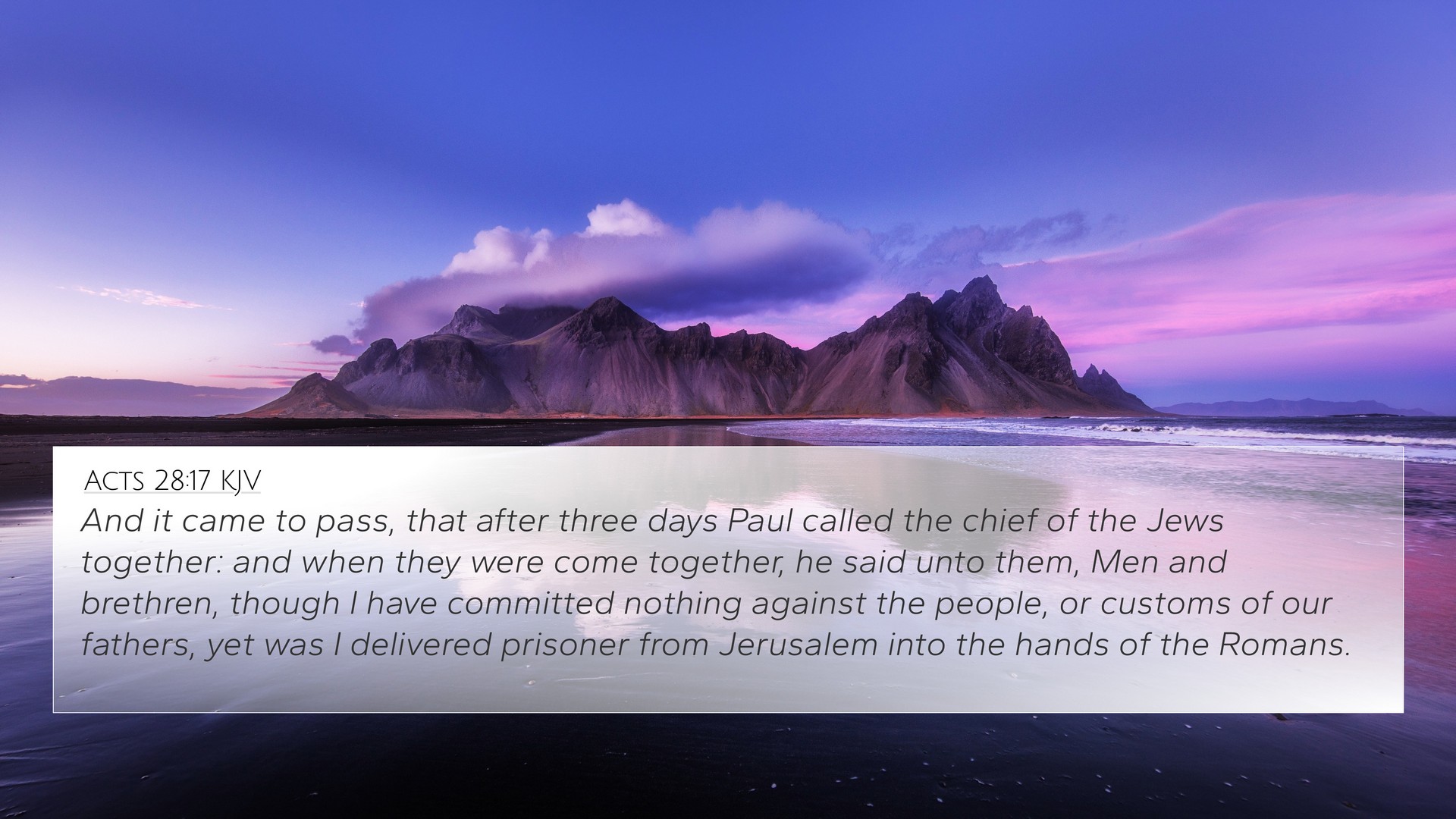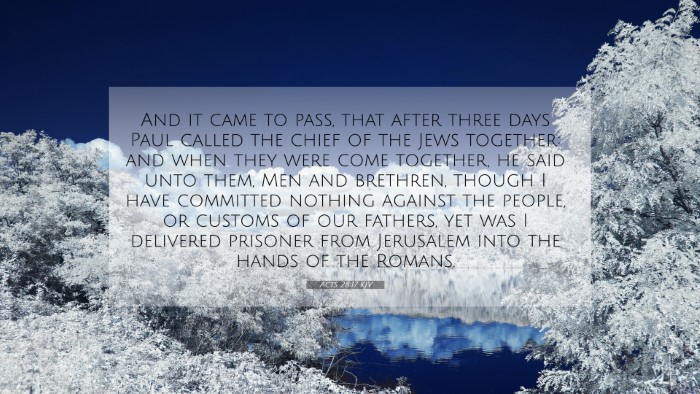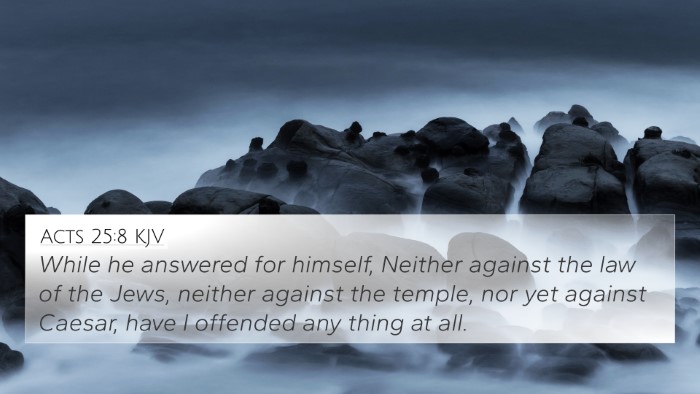Old Testament
Genesis Exodus Leviticus Numbers Deuteronomy Joshua Judges Ruth 1 Samuel 2 Samuel 1 Kings 2 Kings 1 Chronicles 2 Chronicles Ezra Nehemiah Esther Job Psalms Proverbs Ecclesiastes Song of Solomon Isaiah Jeremiah Lamentations Ezekiel Daniel Hosea Joel Amos Obadiah Jonah Micah Nahum Habakkuk Zephaniah Haggai Zechariah MalachiVerse
Acts 28:1 Acts 28:2 Acts 28:3 Acts 28:4 Acts 28:5 Acts 28:6 Acts 28:7 Acts 28:8 Acts 28:9 Acts 28:10 Acts 28:11 Acts 28:12 Acts 28:13 Acts 28:14 Acts 28:15 Acts 28:16 Acts 28:17 Acts 28:18 Acts 28:19 Acts 28:20 Acts 28:21 Acts 28:22 Acts 28:23 Acts 28:24 Acts 28:25 Acts 28:26 Acts 28:27 Acts 28:28 Acts 28:29 Acts 28:30 Acts 28:31











